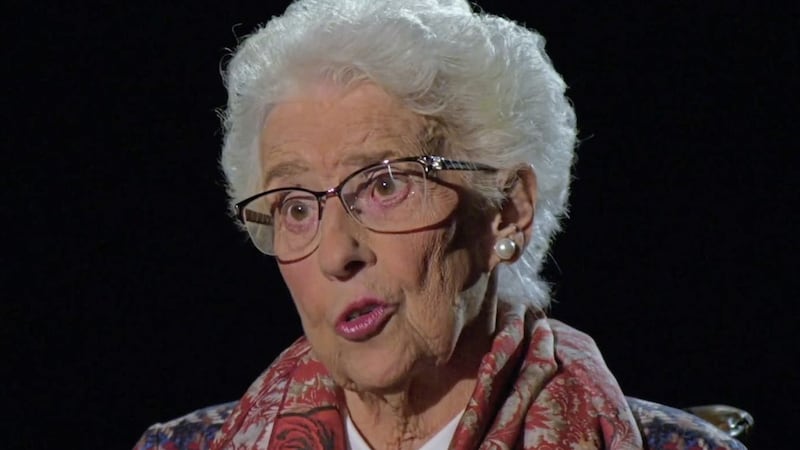In recent days, Eileen Paisley and Seamus Mallon have both spoken about future social change across Ireland. Different sectors of society will find challenges in their respective public comments. Many voices have already responded.
My approach tends to be a bit different. I’ve yet to form any firm views. Increasingly, I find it more constructive to do something that sounds passé in this age of social media and 24/7 ‘message control’, where everyone is apparently an instant expert: namely, to press the pause button, take some time, stop, and think.
First, I’m going to listen again to Baroness Paisley’s full interview with Radio Ulster, before taking space to consider its wider import. Second, I’m going to read the full content of Mr Mallon’s book before I venture towards any conclusions - not least because it contains 48 detailed pages about future constitutional ideas for this island.
Of course some citizens will always react strongly to different newspaper articles or media interviews. And one person’s experiences (or perceptions) about another person’s past will always influence their views in the present. Unfortunately this approach can often be superficial and negative because it’s not motivated by genuine engagement.
Returning to a long-standing theme of this column, perhaps we could all start showing a greater generosity and working wisdom, within the public square? Where we don’t knee-jerk. Where we pause. We engage. We read the full text. We hear the whole context. If we make mistakes, okay – we leave our ego at the door and start again. Equally, we seek to create similar spaces for other people and issues to do likewise. We respect that alternative experiences are just as valid, and as validating, as our own. If we disagree, we tackle issues not individuals.
Through this approach, we might just begin to create a new positive atmosphere where interventions from every side can be heard, rather than harangued – including our own. Thus the public square can become a more virtuous circle. For that is where the hard yards of negotiated outcomes are actually ploughed.
Importantly, when you dial down the noise and volume you can sometimes pick up quiet, interesting, invitational contributions - like Jeffrey Donaldson in Dublin two weeks ago, noting the fact that it was committed and dedicated Ulster Presbyterians, from his tradition, who historically helped to keep alive the Irish language.
Anyone who remembers the Downing Street Declaration in 1993 will recall the endless months of calls for ‘clarification’. Every word parsed. Every comma analysed. Documents and papers were exchanged relentlessly as different sides sought to gain an accurate understanding of each other. It sometimes makes me wonder what ever happened to sensible responses like: “I need time to study the detail before I comment.”
The idea and process of ‘clarification’ bore fruit, but it took time. And it required patience, and generosity, and critical thinking. Likewise, this is now a moment to rediscover those characteristics. And it is a moment to hear alternatives that fundamentally challenge us all. Because our society in recent years still hasn’t got it right.
Politics moves in cycles. As far back as early 2013, an unstrategic and negative atmosphere was already beginning to invade the assembly and executive. That was long before controversies about the non-development of Maze-Long Kesh, before RHI, before high-profile criminal murders on Belfast streets, before Brexit, before new issues became ‘red lines’. It was a negative atmosphere that predictably contributed to the context where local politics got set back for years.
We’re now inevitably emerging from that long cycle of negativity: there is no other option. The political institutions are, at least today, steadily gaining momentum towards their full restoration on a better and sustainable footing, probably within the next nine to 12 months. (Watch closely as the winds start to shift, and some – who proclaimed the assembly’s permanent demise - begin to spin softer outcomes.)
In 2020, there will be real challenges – genuine social ‘crises’ - awaiting any newly elected, incoming assembly and executive. These can only be addressed through a process of collective responsibility in politics: for example, Brexit’s endless instability; climate change disaster; public finances; long-delayed socio-economic development (such as completing the final phase in the regional stadium programme, Casement Park); delivering local stability during global turmoil.
But the overarching, fundamental issue – the one that will determine our collective ability to do everything else in this society - is the priority of building genuine relationships based on dignity across these islands.
People suffer when politics becomes a dogfight rather than a dialogue. It’s time we all listened better and learned more from each other. That’s where real leadership lives.








